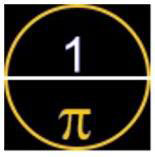Proof
Etymology: from Latin proba, from Latin probare to test, prove; from probus good, from pro- before, forward + -bus (from the root of fui I have been) -- more at Pro-, Be. "something that induces certainty or establishes validity: as a : a chain of statements or formulas leading logically from axioms and theorems previously established to the theorem which is the conclusion of the demonstration b : a mathematical process that establishes the validity of a theorem or statement c : an act, effort, or operation designed to establish or discover a fact or truth " A proof is sufficient evidence or argument for the truth of a proposition. In most areas, evidence is drawn from experience of the world around us, with science obtaining its evidence from nature, law obtaining its evidence from witnesses and forensic investigation. A notable exception is mathematics, whose evidence is drawn from a mathematical world begun with postulates and further developed and enriched by theorems proved earlier. Proofs have been presented since antiquity. Aristotle used the observation that patterns of nature never display the machine-like uniformity of determinism as proof that chance is an inherent part of nature. On the other hand, Thomas Aquinas used the observation of the existence of rich patterns in nature as proof that nature is not ruled by chance. Augustine of Hippo provides a good case study in early uses of informal proofs in theology. He argued that given the assumption that Christ had risen, there is resurrection of the dead and he provided further arguments to prove that the death of Jesus was for the salvation of man. Proofs need not be verbal. Before Galileo,
people took the apparent motion of the Sun across the sky as proof that the Sun went round the Earth. Suitably
incriminating evidence left at the scene of a crime may serve as proof of the identity of the perpetrator.
Conversely, a verbal entity need not assert a proposition to constitute a proof of that proposition. For example, a
signature constitutes direct proof of authorship; less directly, handwriting analysis may be submitted as proof of
authorship of a document. Privileged information in a document can serve as proof that the document's author had
access to that information; such access might in turn establish the location of the author at certain time, which
might then provide the author with an alibi.
|
